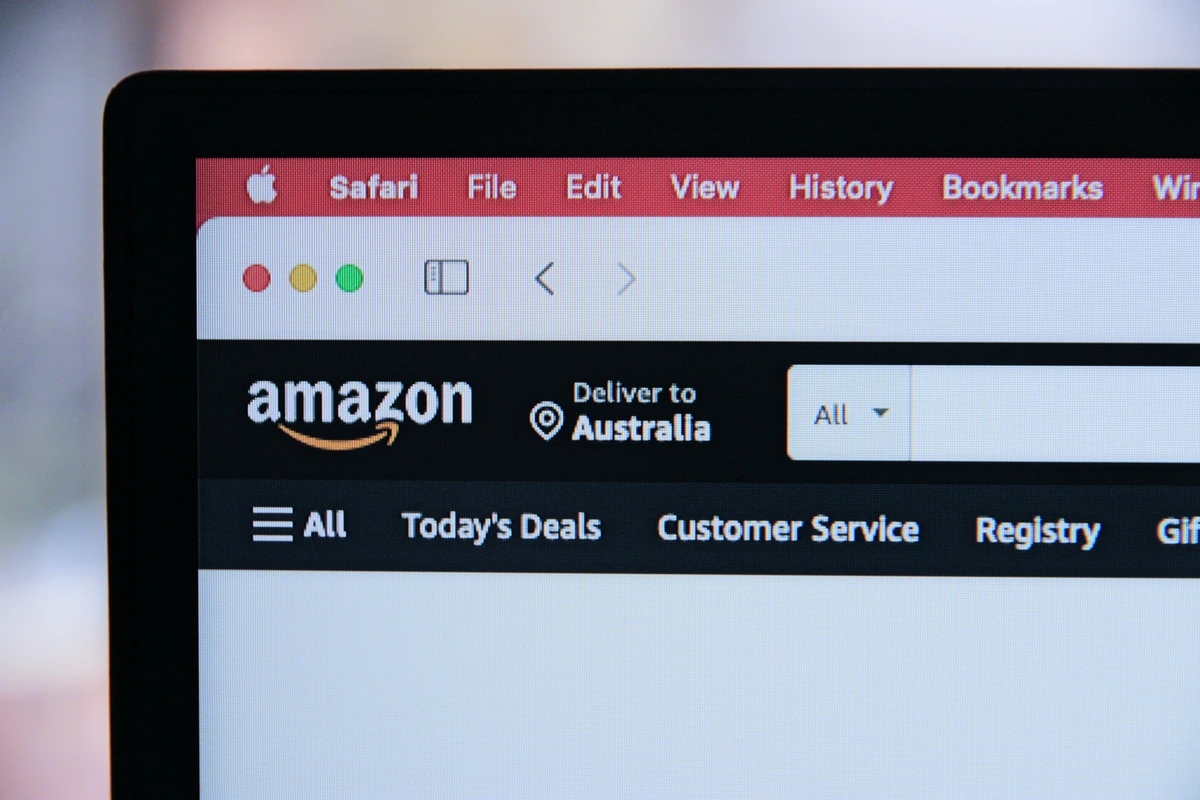
Hey there, savvy savers and conscious consumers! It’s Matt from 'Low Buy Life', here to chat about a digital dilemma many of us face: the siren song of online shopping giants like Amazon and newer players like Temu. Let’s talk about why I’ve decided to put my virtual shopping cart in park and embrace a more mindful approach to purchasing.
The Instant Gratification Trap
In the land of Amazon and other online shops, everything is designed for speed and ease. One-click buying? It's like a speedboat on the river of retail – fast, flashy, and a little too easy to steer into the whirlpool of overspending. You blink, and suddenly you're the proud owner of a banana slicer, a glow-in-the-dark toilet seat, and a dozen other things you never knew you needed.
Sales and deals in these online shops are like the sirens of the sea – enchanting, mesmerizing, and oh-so-tempting. They sing a sweet melody of discounts and time-limited offers, luring you onto the rocky shores of impulse buying. "Act now, or regret forever!" they croon. But here’s the thing – it’s okay to miss a sale. Really, it is. There will always be another deal, another discount.
Let's talk emotions. Feeling down? Click. Bored? Click. Celebrating? Click. Online shopping can become an emotional rollercoaster where every click brings a brief high, followed by the inevitable plunge of buyer's remorse. It’s a cycle as predictable as it is unfulfilling. In this world of instant gratification, there's a secret superpower called JOMO – the Joy of Missing Out. It’s about finding contentment in not having everything at your fingertips. It’s about savoring the anticipation, relishing the wait, and cherishing the thought that goes into each purchase.
The Environmental Elephant in the Room
Let’s start with the parade of packaging. Ever ordered a tiny item that arrives in a box big enough for a small elephant? Inside that box, you find air-filled plastic pillows, bubble wrap, and sometimes, a smaller box. It’s like a Russian nesting doll situation, but less charming and more wasteful. All this packaging contributes to a mountain of waste – and not the kind of mountain we want to climb.
Next up, the delivery dilemma. Those speedy deliveries are convenient, but they're zipping around in trucks and planes that guzzle fuel and cough out emissions. It’s like having a fleet of carbon footprint ninjas sneaking around the city. Sure, we get our packages fast, but at what cost to our planet? Oh, and let’s not forget about returns. In the digital shopping world, it's easy to buy first and think later. But every return means double the journey – back to the warehouse it goes, doubling the environmental impact. It’s a round trip for that pair of shoes that didn’t quite fit.
The Community Connection
Remember when shopping was a social event? Walking into a store, being greeted by name (or at least a friendly smile), and actually talking to people – in person! Shopping locally brings back that personal touch. It’s like attending a neighborhood party where every shop is a guest with its own unique story. Spending your dollars locally is like planting seeds in your own backyard. It helps the community grow and flourish. Local businesses hire local folks, sponsor local teams, and contribute to the local economy. It’s a cycle of support that keeps the community vibrant and alive.
Shopping locally also has an eco-friendly bonus. Less shipping means a smaller carbon footprint. It’s like giving Mother Earth a little nod of thanks every time you buy from a local artisan or a farmer's market. Plus, you get the added joy of walking or biking to the store, which is like a mini workout for you and a big win for the environment.
The Quality Quest
In the online shopping kingdom, it’s easy to be dazzled by deals and bargains. But let’s face it, sometimes what arrives on our doorstep is more fleeting fancy than lasting love. The sweater that looked cozy online unravels after two washes; the gadget that seemed a steal suddenly stops stealing the show (and starts collecting dust). It's like going on a treasure hunt and finding fool's gold.
Now, let's turn the page to the local shops. These places are like artisanal alcoves where craftsmanship isn't just a buzzword; it's a way of life. Products here often have a story, a human touch, a slice of someone’s heart and soul. They’re made to last, to be cherished, to be part of your story. It’s like each item has its own personality, waiting to be introduced to yours. There’s a certain magic in being able to touch, feel, and try before you buy. It’s a sensory adventure that the digital world just can’t replicate. The feel of the fabric, the fit of a shoe, the sturdy grip of a tool – it’s a hands-on experience that leads to better, more satisfying purchases. It's like going on a date before committing to the relationship.
Let's chat about price. Yes, quality can mean a higher price tag, but it's about playing the long game. A well-made pair of boots that lasts years beats buying a new pair every winter. It’s about investing in your future self, who’ll thank you for making smart, durable choices. Better-made products mean fewer replacements, less waste, and a happier planet. It’s like choosing a path in the forest that respects the trees, the birds, and the bees. Every high-quality purchase is a step toward a more sustainable future.
The Dark Side of Deals
There's something about a slashed price tag or a "limited time offer" that can make even the most frugal among us go a little wild. It's like a shopping spell – suddenly, you need that inflatable flamingo, and you need it now because it's 50% off! But here's the twist: just because it’s on sale doesn’t mean it’s a steal. Sometimes, it's a siren call leading us to the rocky shores of unnecessary spending.
Bargains often come with a hidden cost – and I'm not talking about shipping fees. I'm talking ethics. Those rock-bottom prices on Amazon, Temu, and other online giants can mean someone, somewhere, is paying the price. Maybe it's a worker under less-than-ideal conditions, or perhaps it's cutting corners on environmental standards. It’s like finding out your favorite superhero was actually a villain all along. And besides, does Bezos really need any more money?
So, why do I avoid Amazon and other online shopping giants? It’s about making choices that align with my values – supporting local businesses, caring for the environment, and being a mindful consumer. It’s not always easy, but it’s definitely worth it. Remember, every dollar you spend is a statement of the world you want to live in. Choose wisely!
